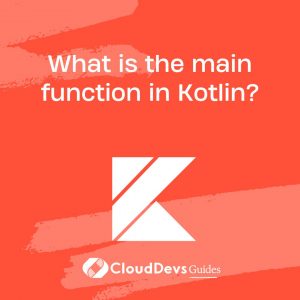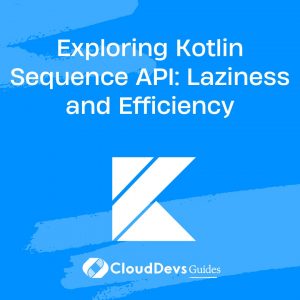What is the main function in Kotlin?
In Kotlin, the main function serves as the entry point for starting the execution of a Kotlin program. It is similar to the main function in other programming languages like Java and C++, and it is the starting point from which the execution of the program begins.
The main function in Kotlin has the following characteristics:
- It is a top-level function, meaning it is not contained within a class or object.
- It must be declared with the fun keyword, followed by the name main.
- It takes an array of strings (Array<String>) as its parameter, which represents command-line arguments passed to the program.
- It does not return any value (Unit in Kotlin), as it serves as the starting point for program execution.
Here’s a basic example of a main function in Kotlin:
kotlin
fun main(args: Array<String>) {
println("Hello, Kotlin!")
}
In this example, the main function takes an array of strings as its parameter args. It simply prints “Hello, Kotlin!” to the standard output when the program is executed.
The main function is required in every Kotlin program, and it must be present for the program to run successfully. When you run a Kotlin program, the Kotlin runtime system automatically looks for the main function and starts the program execution from there.








